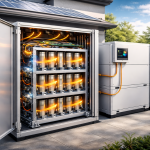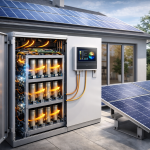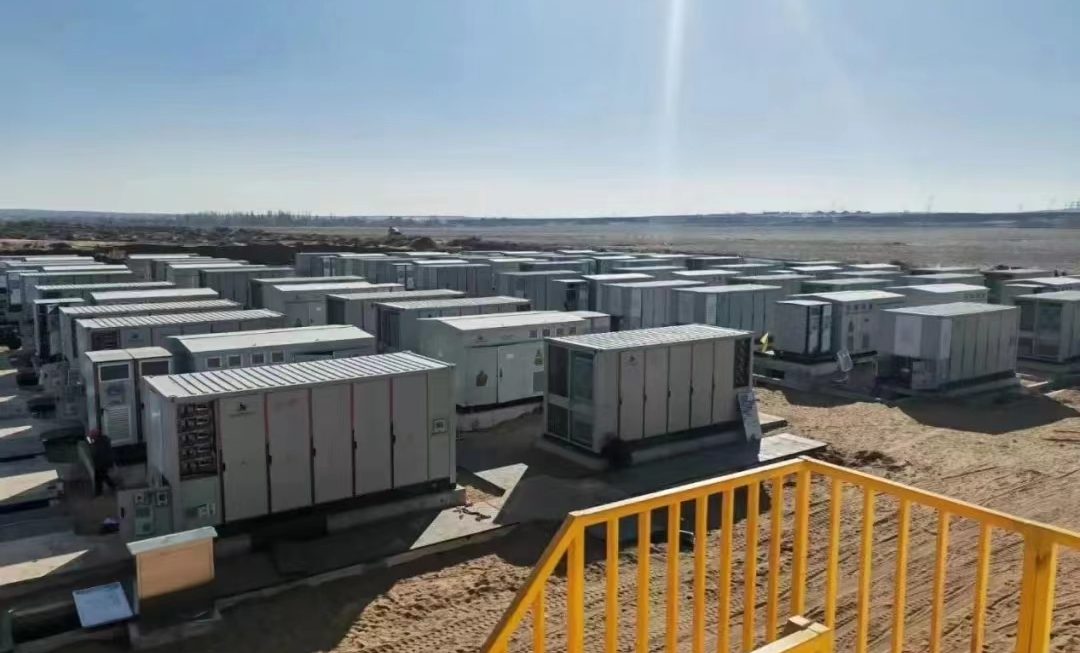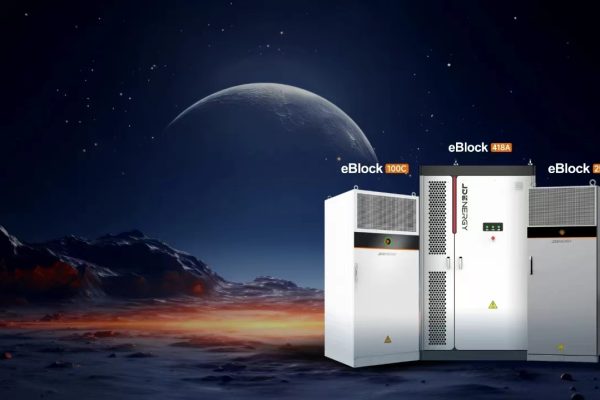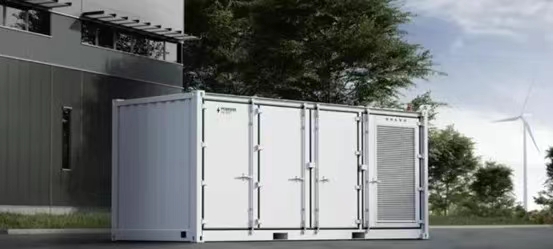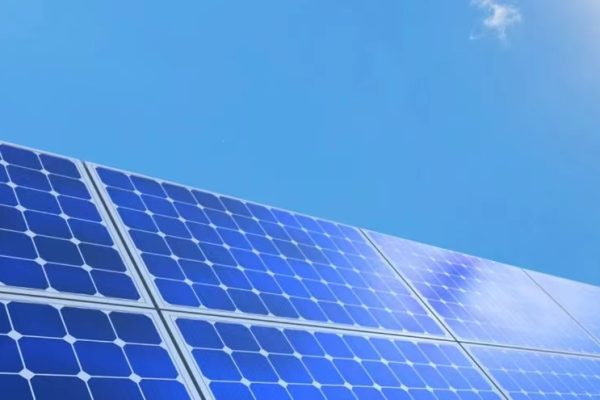In remote areas or off-grid locations, access to a stable and reliable power supply can be a major challenge. Small-scale Photovoltaic (PV) systems combined with energy storage provide an ideal solution to this problem, offering reliable, cost-effective, and sustainable power generation.
This article explores the advantages of small-scale PV + storage systems for off-grid applications, highlighting how they work, their key benefits, and how they can provide an uninterrupted power supply for homes, businesses, and remote installations.
1. The Need for Off-Grid Power Solutions
In areas where the power grid is either non-existent or unreliable, traditional sources of energy like diesel generators are often used to provide electricity. However, these solutions are expensive, polluting, and inefficient. As renewable energy sources become more accessible, small-scale PV + storage systems are emerging as a viable alternative.
Common Challenges of Off-Grid Power Supply:
- High Cost of Diesel Generators: Fuel expenses and maintenance costs can make diesel generators unsustainable in the long term.
- Environmental Impact: Diesel generators emit harmful pollutants, contributing to air and noise pollution.
- Grid Dependency: In areas with limited or no grid infrastructure, reliance on the grid can hinder development.
By combining solar energy with battery storage, small-scale PV systems can generate power during the day and store excess energy for use at night or during cloudy weather, offering a reliable solution for areas that would otherwise be disconnected from the grid.
2. How Small-Scale PV + Storage Systems Work
A typical small-scale PV + storage system consists of the following components:
- Solar Panels (PV Modules): These capture sunlight and convert it into electricity, which is used to power the system or stored in batteries.
- Battery Storage: Batteries store excess solar energy generated during the day for use during the night or when the sun isn’t shining.
- Inverter: The inverter converts the DC electricity from the solar panels and batteries into AC power, which can be used to power appliances and devices.
- Charge Controller: This device manages the charging process of the batteries, ensuring they are charged efficiently and safely.
The system operates by generating power from solar energy when the sun is shining, storing excess energy in the batteries, and using that stored energy to provide power when demand is high or when solar generation is insufficient.
3. Key Benefits of Small-Scale PV + Storage Systems
Small-scale PV + storage systems offer numerous advantages for off-grid power generation, especially in remote locations where access to the grid is limited or unavailable.
a. Reliability and Uninterrupted Power Supply
One of the primary benefits of PV + storage systems is their ability to provide a continuous and reliable power supply. Unlike traditional diesel generators that require fuel and maintenance, a solar system with storage is self-sufficient and can operate independently of external power sources. With proper sizing, these systems can reliably supply power around the clock.
- Daytime: Solar panels generate electricity during the day when the sun is shining.
- Nighttime/Cloudy Days: Energy stored in batteries ensures that the power supply remains uninterrupted, even when sunlight is not available.
For applications like remote homes, farms, or small businesses, this capability ensures reliability without the need for constant monitoring or fuel resupply.
b. Cost Savings in the Long Run
Although the initial installation cost of a small-scale PV + storage system may be higher compared to traditional generators, over time, it proves to be a more cost-effective solution. Here’s why:
- Zero Fuel Costs: Unlike fossil fuel-based generators, solar power doesn’t require ongoing fuel purchases. Once the system is installed, operational costs are minimal.
- Low Maintenance: PV systems have few moving parts, requiring little maintenance aside from occasional cleaning. Batteries also require minimal maintenance if properly managed.
- No Grid Connection Fees: Off-grid systems eliminate the need for costly grid connection fees and infrastructure charges.
For remote installations where grid access is unavailable or prohibitively expensive, PV + storage systems can significantly reduce energy costs in the long run.
c. Environmental Benefits
Another significant advantage of small-scale PV + storage systems is their environmental impact. By relying on solar energy — a clean, renewable resource — these systems reduce reliance on fossil fuels and lower carbon emissions. This helps mitigate the environmental impact of power generation, which is especially important in remote or ecologically sensitive areas.
In addition, the use of energy storage further reduces the need for backup diesel generators, which are known for their high emissions and environmental pollution. For businesses or homes looking to reduce their carbon footprint, solar + storage systems are an excellent choice.
d. Scalability and Flexibility
Small-scale PV + storage systems are highly scalable. This means that the system can be sized based on the energy needs of the user and can easily be expanded as those needs grow over time.
For example, a small off-grid cabin may only require a small 3 kW solar array and a 5 kWh battery, while a remote business might need a 10 kW system with larger storage capacity to meet higher energy demands.
As energy needs increase, additional solar panels and battery storage modules can be added to the system. This modularity makes it an adaptable solution for both small and large off-grid power projects.
4. Applications of Small-Scale PV + Storage Systems
Small-scale PV + storage systems are suitable for a variety of off-grid applications. Some of the most common include:
a. Off-Grid Homes and Cabins
For homes located in rural or remote areas where grid power is not available, PV + storage systems provide a cost-effective and reliable energy source. The system can power lights, appliances, and even HVAC systems, ensuring residents enjoy the same quality of life as those connected to the grid.
b. Remote Businesses and Farms
Small businesses and agricultural operations in off-grid locations can benefit greatly from PV + storage systems. Whether it’s a remote farm, guesthouse, or workshop, solar power provides clean, reliable energy. The energy storage ensures that business operations continue even during periods of low sunlight.
c. Telecommunications and Emergency Backup
Telecommunication towers, data centers, and emergency backup systems often rely on off-grid power sources to ensure 24/7 operations. Small-scale PV + storage systems provide a reliable alternative to fuel-powered generators, reducing operational costs and downtime.
d. Remote Research Stations and Field Camps
In scientific research or exploration, researchers often work in isolated locations without grid access. PV + storage systems provide the power required for equipment, lighting, and communication without the logistical complexity of transporting fuel.
5. Key Considerations for Installing a Small-Scale PV + Storage System
Before installing a small-scale PV + storage system, several factors should be considered to ensure optimal performance and long-term reliability:
a. System Sizing
The system must be sized correctly to meet energy needs while ensuring sufficient storage capacity. This depends on:
- Daily energy consumption
- Solar radiation levels in the area
- Battery storage capacity for night-time use or cloudy days
b. Battery Technology
Batteries are a crucial component of the system. Lithium-ion batteries are the most common choice due to their high efficiency, long cycle life, and compact size. However, lead-acid batteries are still used in some off-grid systems for their lower upfront cost.
c. Inverter Selection
Choosing the right inverter is essential for converting DC power from the solar panels and batteries into AC power for household or business use. Inverters should be chosen based on system size and load requirements.
d. Maintenance and Monitoring
Regular maintenance, especially for batteries, is important to ensure the system runs efficiently. Monitoring systems can help track energy production and consumption, alerting users to any issues before they become major problems.
6. The Future of Small-Scale PV + Storage Systems
Small-scale PV + storage systems represent the future of off-grid power solutions. They offer reliability, cost savings, and environmental benefits for homes, businesses, and remote locations. With the ability to generate and store solar energy, these systems ensure an uninterrupted power supply without the reliance on fossil fuels or grid infrastructure.
As solar technology continues to improve and battery prices continue to drop, small-scale PV + storage systems will become even more accessible and affordable for off-grid applications. For anyone looking to create a self-sustaining, environmentally friendly power solution, PV + storage systems offer an ideal path forward.

